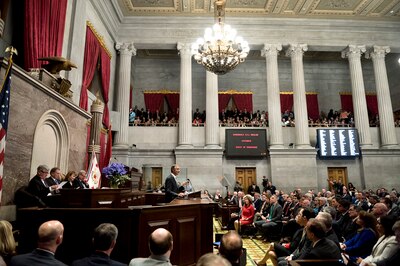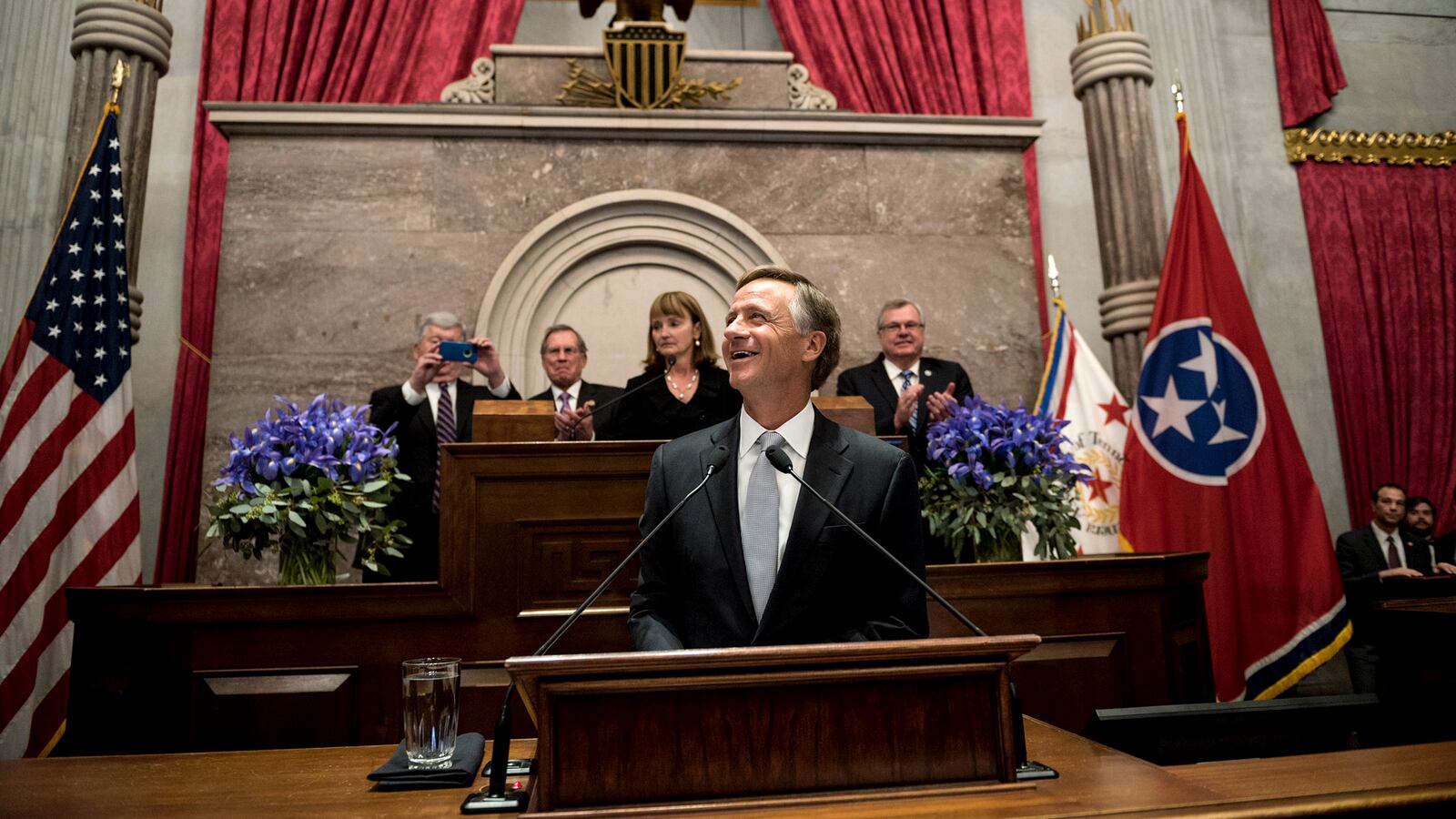Tennessee public schools would get an additional $212 million, including funding for increasing teacher pay for the third straight year, under Gov. Bill Haslam’s final proposed budget released on Monday.
Of the increase proposed for K-12 education, Haslam wants $55 million to go to teacher pay hikes. If approved, it would bring the total increased funding for teachers salaries to $500 million during his eight-year administration.
He also proposed to help districts pay for a state-mandated but unfunded intervention program for struggling students, as well as smaller amounts for programs to promote literacy and develop school principals.
The outgoing Republican governor announced the investments in his last State of the State address as he touted the growth of Tennessee students in math, English, and science on national tests, as well as a record-high graduation rate for high-schoolers. He implored the state to continue accountability-based education reforms of the last decade that he credited for the improvements.
“Together we have made the right calls, the tough calls, on the policies we’ve pursued,” Haslam said of raising academic standards, developing a test to measure those standards, and tying teacher evaluations to test results.
“… We have not compromised. And I’m asking you to stand with me to ensure that we don’t back up now. Not now. Not this year. Not next year. Not ever.”
The $37.5 billion overall budget plan was conservative but friendly to K-12 education considering that it anticipates only slightly higher revenues than last year. Haslam said his work this year will be grounded in three priorities: education, jobs, and government efficiency.
Higher education initiatives would receive almost $100 million in additional money. To help students complete college on time, Haslam also wants to restructure the Tennessee Promise scholarship for community college and the lottery-funded HOPE scholarship, which is merit-based.
For K-12, Haslam asked for $13.3 million annually to help school districts pay for the state’s required intervention program aimed at keeping struggling students from falling through the cracks. Known as Response to Instruction and Intervention, or RTI, the program is in its fourth year but has never had state money to prop it up.
Haslam wants another $10 million for school improvement grants for “priority schools” in the state’s bottom 5 percent in academic performance, $6 million to help charter schools pay for facilities for a second year in a row, $4.5 million for the state’s reading initiative in its third year, and $1.75 million to help build and strengthen the state’s principal pipeline.
In a statement later, Education Commissioner Candice McQueen noted that K-12 education would receive the lion’s share of new funding under Haslam’s proposal.

“The governor’s budget builds on our priority areas and what we know works, particularly in helping our youngest students learn to read, in ensuring every school is led by an excellent principal, and in funding for grants for our highest need schools,” McQueen said.
Now the budget goes to lawmakers for revisions and approval before the legislative session ends this spring. If Haslam’s K-12 proposal stands, education spending will have increased by $1.5 billion during his administration.
The proposed pay boost for teachers was welcome news for educators, but not all of the money would likely reach their paychecks. That’s because local districts have discretion on how to invest state funding in instructional needs if they already pay their teachers the state’s base salary of $35,000.
Editor’s note: This story has been updated to include the state’s average base salary for teachers.

